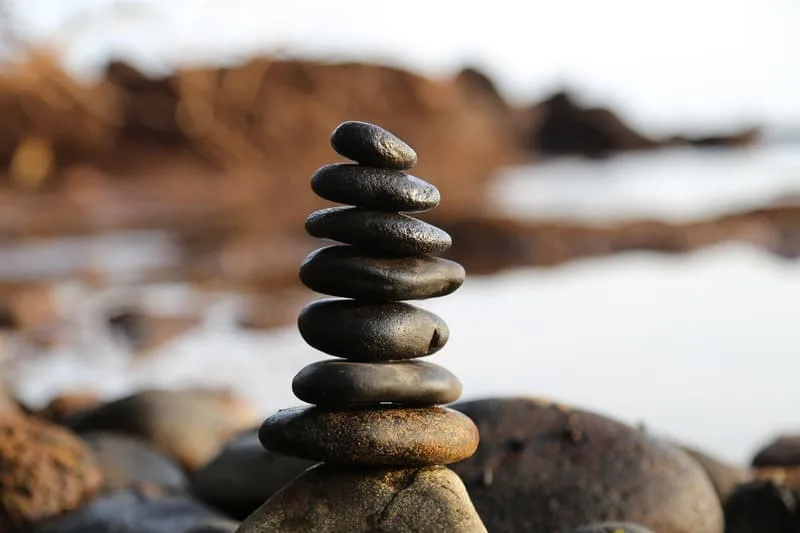Adjusting to a new environment can be a daunting experience, filled with challenges and uncertainties. Whether it’s relocating to a different city, starting a new job, immersing oneself in a foreign culture, or even refreshing your home for a reset, change often brings about stress and anxiety.
In these moments of transition, the search for coping mechanisms becomes crucial. This is where meditation steps in.
The practice of meditation offers a holistic approach to managing the upheaval that accompanies change. It aids adaptation and can help you embrace a new environment confidently and easily.

The Science Behind Stress and Change
Change is an inevitable part of life, and while it often brings exciting opportunities, it can also trigger stress and anxiety. When faced with a new environment, our bodies react physically and mentally.
The stress response, often referred to as the “fight or flight” reaction, is initiated by the release of stress hormones like cortisol and adrenaline. These hormones can lead to increased heart rate, shallow breathing, and a state of heightened alertness.
In the context of adjusting to a new environment, these physiological responses can become overwhelming. The uncertainty, unfamiliarity, and challenges associated with change contribute to this stress.
This is where meditation comes into play, as it offers a practical and scientifically proven way to counteract the negative impacts of stress and anxiety during times of change. Although stress is a natural (and even healthy) response in certain circumstances, prolonged exposure to it can have detrimental effects on our health and well-being.

How Meditation Aids in Adjusting to a new Environment
Meditation is a comprehensive practice that can significantly help with adjusting to a new environment. It promotes relaxation and reduces stress by calming the nervous system. It triggers the release of endorphins, the body’s natural stress relievers, leading to a sense of calm and tranquility.
Furthermore, meditation enhances mindfulness, which allows you to stay present and aware. This heightened awareness helps you better navigate the challenges of a new environment, as it fosters a non-judgmental understanding of your surroundings and circumstances. That way, you become more attuned to your emotions and reactions, paving the way for healthier coping strategies.
Take, for instance, relocating to a new city. The unfamiliarity of the surroundings, the task of settling into a new home, and the need to establish a social network can all lead to heightened stress levels. Meditation can alleviate stress after moving by providing a moment of calm amidst the chaos. Through regular meditation practice, individuals can embrace their new environment with a sense of inner peace and clarity.
Building Resilience Through Meditation
One of the remarkable benefits of meditation is its ability to cultivate resilience, a crucial trait when adapting to a new environment. Resilience allows individuals to bounce back from setbacks, remain emotionally stable, and thrive in the face of adversity.
Meditation instills a sense of inner calm and emotional balance. It teaches you to acknowledge your thoughts and emotions without judgment, fostering self-awareness. As a result, you become better equipped to manage stressors and setbacks that may arise when adjusting to a new environment.
Furthermore, meditation encourages a growth mindset, promoting the belief that challenges can be growth opportunities. This shift in perspective enables you to embrace change as a chance for personal development rather than a source of distress.
Consider the scenario of starting a new job in a different industry. This transition can be intimidating, as it involves learning new skills and adapting to a different work culture. Meditation helps build resilience by providing the mental fortitude to face uncertainties and challenges with confidence.

Enhancing Focus and Clarity
Maintaining focus and mental clarity can be daunting in the whirlwind of adjusting to a new environment. Distractions and anxieties often hinder productivity and hinder the ability to adapt effectively.
But meditation teaches you to concentrate on the present moment, honing your ability to stay focused amidst external chaos. You become less susceptible to the mental clutter that can disrupt your thought processes during transitions.
Moreover, meditation enhances cognitive functions, including memory and decision-making. These cognitive improvements can be invaluable when you’re required to learn new information or make important choices in a new environment.
Cultivating Mindfulness for Cultural Sensitivity
Meditation, with its emphasis on mindfulness, cultivates a heightened awareness of your thoughts, emotions, and the world around you. This self-awareness lays the foundation for cultural sensitivity, as it encourages you to approach new cultures with an open mind and a heart unburdened by preconceived notions.
As an integral component of meditation, mindfulness allows you to become attuned to cultural nuances, facilitating a deeper understanding and respect for diversity. Practicing mindfulness can overcome the fear of change that often accompanies immersion in a new culture, as it promotes acceptance and curiosity rather than resistance.

Creating a sense of balance when adjusting to a new environment can be challenging, as the demands of a different lifestyle often disrupt familiar routines.
Meditation offers a structured approach to finding balance in a new routine. By incorporating a regular meditation practice, such as establishing a morning meditation routine, you create a stable anchor in your day. This helps you set a positive tone for the rest of your activities and provides a sense of continuity in an otherwise unfamiliar landscape.
Moreover, meditation encourages you to prioritize self-care, vital during transitions. By dedicating time to meditation, you signal the importance of your mental and emotional well-being, reinforcing a healthy balance between your personal needs and external demands.
So, meditation, focusing on mindfulness and self-care, enables you to find equilibrium in your new routine. It ensures you can tackle challenges with poise and maintain a sense of well-being throughout your adjustment period.
Embrace Change with Inner Calm!
Amid life’s transitions, the practice of meditation offers solace and resilience. By understanding the science behind stress and change, we uncover the power of meditation in alleviating stress after moving to a new environment.
Through mindfulness and self-awareness, meditation equips us to build resilience, enhance focus and clarity, and cultivate cultural sensitivity. This journey ultimately leads to adjusting to a new environment with grace.
Take your first step!
If you want to explore further how meditation can help you during the time of transition, join our free live guided meditations!
Click here and start your meditation journey today!







